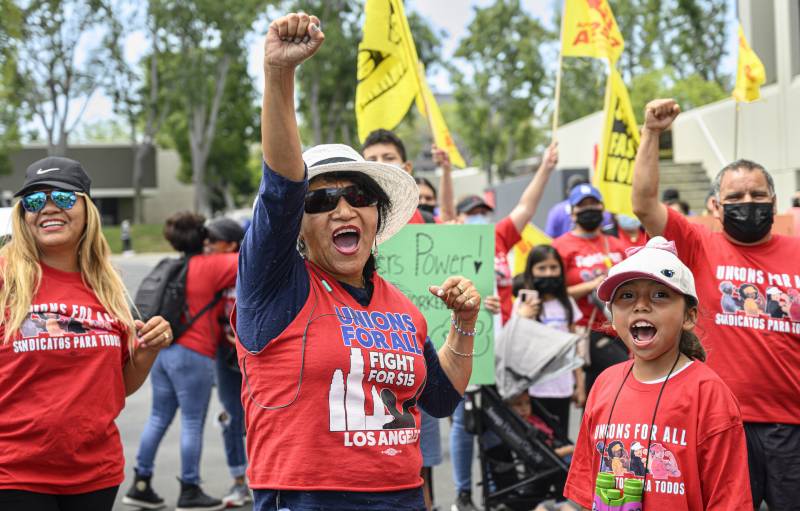Gov. Gavin Newsom on Monday signed a nation-leading measure giving more than a half million fast-food workers more power and protections, despite the objections of restaurant owners who warned it would drive up consumers’ costs.
Landmark Law for Fast-Food Workers Passes on Labor Day

The landmark law creates a 10-member Fast Food Council with equal numbers of workers’ delegates and employers’ representatives, along with two state officials, empowered to set minimum standards for wages, hours and working conditions in California.
Newsom said he was proud to sign the measure into law on Labor Day.
“California is committed to ensuring that the men and women who have helped build our world-class economy are able to share in the state’s prosperity,” he said in a statement. “Today’s action gives hardworking fast food workers a stronger voice and seat at the table to set fair wages and critical health and safety standards across the industry.”
The law caps minimum wage increases for fast-food workers at chains with more than 100 restaurants at $22 an hour next year, compared to the statewide minimum of $15.50 an hour, with cost-of-living increases thereafter.
The state Legislature approved the measure on August 29. Debate split along party lines, with Republicans opposed.
Sen. Brian Dahle, the Republican nominee for governor in November, had called it “a stepping stone to unionize all these workers.”
Supporters had said they hoped the measure would inspire similar efforts elsewhere.
Restaurant owners and franchisers cited an analysis they commissioned by the UC Riverside Center for Economic Forecasting and Development saying that the legislation would increase consumers’ costs.
